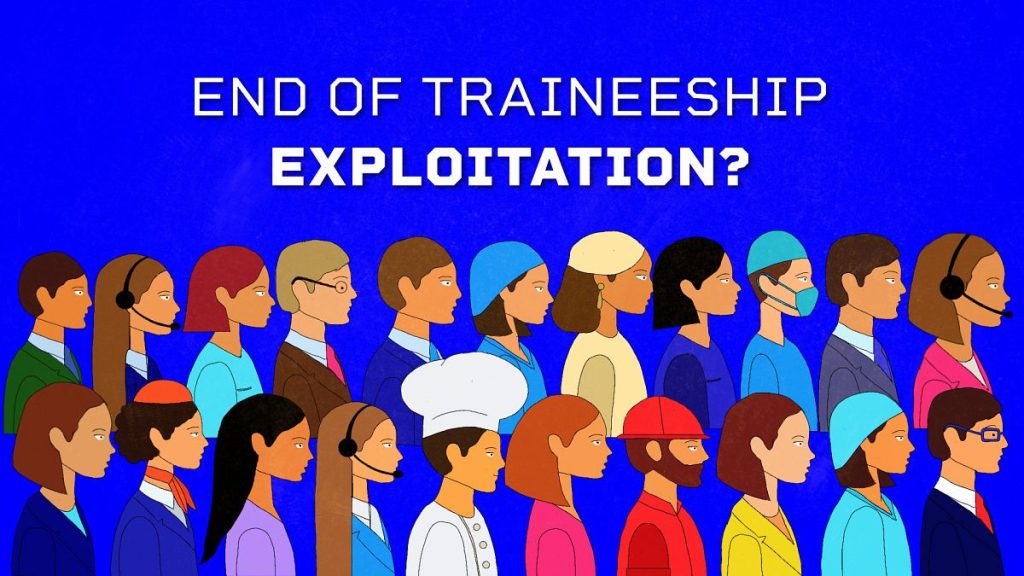The European Union is grappling with the pervasive issue of unpaid and exploitative internships, impacting an estimated 1.5 million young people. While the EU boasts over three million trainees on temporary contracts, nearly half receive no compensation for their labor. This practice raises concerns about fair treatment, equal opportunities, and the potential for abuse, particularly for vulnerable groups. In March 2024, the European Commission proposed a directive aimed at establishing a new standard for “quality internships,” encompassing fair remuneration, pension contributions, and equitable access. This proposal seeks to ensure that internships serve as valuable learning experiences rather than a source of cheap labor.
However, the path to implementing this directive is fraught with challenges. In December 2024, the 27 EU member states failed to reach a consensus on the proposal, stalling its progress. This lack of agreement stems from the fact that regulating internships falls under national competence, limiting the EU’s ability to impose legally binding legislation. Despite this setback, the European Commission remains committed to refining the existing text and working towards a solution that addresses the concerns of all member states. The Commission recognizes the crucial role of quality internships in bridging the skills gap, tackling youth unemployment, and attracting young talent to the job market.
The importance of internships for young Europeans is undeniable. A 2023 Eurobarometer survey revealed that a significant majority, 78%, have completed at least one internship during their educational or early career journey. Furthermore, cross-border mobility is evident, with a fifth of interns choosing to gain experience in a different EU member state. Internship participation varies across countries, reaching up to 90% in Germany, France, and the Netherlands, while remaining lower in countries like Malta, the Czech Republic, and Sweden. These disparities highlight the diverse approaches to internships across the EU and the need for a common framework to ensure minimum standards.
Divergence in opinions among member states remains a significant hurdle. Countries like Spain and Germany express reservations about the current proposal, fearing a “race to the bottom” where low wages are prioritized over educational value. Conversely, Baltic and Nordic countries generally support the proposal as it stands. This division underscores the challenge of balancing national priorities with the overarching goal of protecting young workers. Resolving these conflicting viewpoints will be crucial for the directive’s success.
A key concern raised by the European Youth Forum, trade unions, and some members of the European Parliament is the limited scope of the current draft directive. It is estimated that up to three-quarters of trainees may be excluded from its protections, as it currently applies only to open market positions. This means that interns hired for work experience related to their educational curriculum, government labor market policies, or professional training would not be entitled to fair pay or social security coverage. Critics argue that such a narrow scope undermines the directive’s purpose and leaves a vast majority of interns vulnerable to exploitation. Expanding the directive’s coverage is seen as essential to ensuring its effectiveness.
The consequences of unregulated internships extend beyond financial concerns. With youth unemployment in the EU at 14.9% – more than double the general unemployment rate – young people often find themselves trapped in a cycle of unpaid or low-paid internships, hindering their career progression and financial independence. The lack of structure, supervision, and clear pathways to employment can lead to disillusionment and wasted potential. Calls for improved regulation, including third-party oversight and clearer guidelines, aim to ensure internships are genuinely beneficial learning experiences that contribute to career development. The Polish presidency of the Council of the EU is tasked with facilitating further discussion in the first half of 2025, aiming to reignite negotiations between the European Parliament and the European Commission and ultimately reach an agreement on a final text. The success of this endeavor remains uncertain, but the urgency of addressing the issue of exploitative internships underscores the need for a decisive and effective solution.










